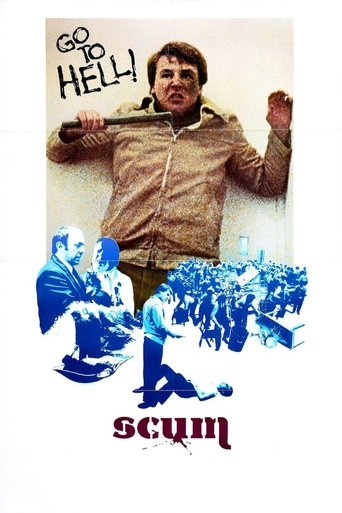Alan Clarke, regissör, född 1935-10-28 i Wallasey, Merseyside, England, Storbritannien, dog 1990-07-24 (blev 54 år).
Vi listar 1 film, tv-serie som han har medverkat/deltagit i - se via streaming och play.
Regissör
| År | Titel |
|---|---|
| 1979 | Scum |
Titlar
Bio
Alan Clarke (28 October 1935 – 24 July 1990) was a television and film director, producer and writer, born in Wallasey, Merseyside, England. Most of Clarke's output was for television rather than cinema, including work for the famous play strands The Wednesday Play and Play for Today. His subject matter tended towards social realism, especially with respect to deprived or oppressed communities. As Dave Rolinson's book (see 'Further reading', below) on Clarke details, between 1962 and 1966 Clarke directed several plays at The Questors Theatre in Ealing, London. Between 1967 and 1969 he directed various ITV productions including plays by Alun Owen (Shelter, George’s Room, Stella, Thief, Gareth), Edna O’Brien (Which Of These Two Ladies Is He Married To? and Nothing’s Ever Over) and Roy Minton (The Gentleman Caller, Goodnight Albert, Stand By Your Screen). He also worked on the series The Informer, The Gold Robbers and A Man Of Our Times (but not, as Sight and Sound once claimed, Big Breadwinner Hog). Clarke continued to work for ITV through the 1970s but now made much of his work for the BBC. This included pieces for The Wednesday Play (Sovereign's Company 1970), Play for Today and Play of the Month. Distinctive work for these strands included further plays by Minton including Funny Farm (1975) and Scum (further details below), but also Sovereign’s Company (1970) by Don Shaw, The Hallelujah Handshake (1970) by Colin Welland and Penda’s Fen (1974) by David Rudkin. He also made To Encourage the Others (1972), a powerful drama documentary about the Derek Bentley case, and several documentaries, including Vodka Cola (1981) on multinational corporations. A number of his works achieved notoriety and widespread criticism from the conservative end of the political spectrum, including Scum (1977), dealing with the subject of borstals (youth prisons), which was banned by the BBC, and subsequently remade by Clarke as a feature film in 1979 (the original television version was eventually screened after his death). His 1982 t...
